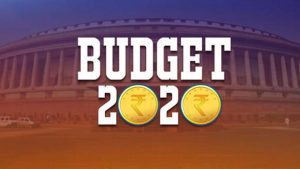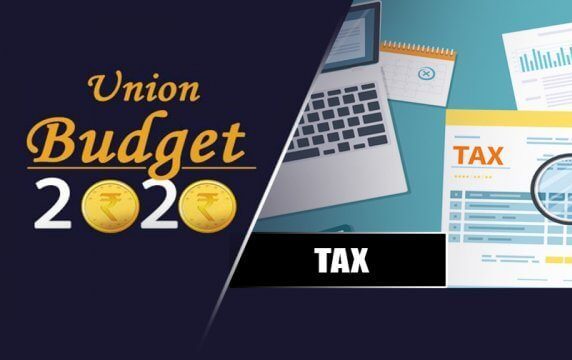Our Associate Editor, Navodita, critiques the Union Budget 2020. She opines that it has serious shortcoming in one area requiring urgent course correction. Among other things the worrisome feature in the Budget concerns the measures announced in the area of international trade. An exclusive for Different Truths.
This Union Budget was an inconsequential one for the common man with a middle-class income and salary or a regular job. It has serious shortcoming in one area requiring urgent course correction. Among other things the worrisome feature in the Budget concerns the measures announced in the area of international trade. A little more than two years ago, when Government of India raised some tariffs, some economic pundits took the view that this was an isolated action driven by a bureaucrat steeped in socialist-era thinking. But a disturbing pattern in trade policy has emerged since then.
Not only have tariff increases continued, licence permit raj-era protectionist vocabulary also has had a comeback. During that era, import substitution was a key buzzword.
Not only have tariff increases continued, licence permit raj-era protectionist vocabulary also has had a comeback. During that era, import substitution was a key buzzword. Official policy was to allow the import of a product only if the importer could prove to the satisfaction of a designated government agency that it was ‘essential’.
Reforms that began in 1991 progressively replaced import substitution by outward orientation and did away with ‘essentiality’ and ‘domestic availability’ criteria for imports. But the import substitution, as well as the two import criteria, have had a comeback now. Ministers routinely call for import substitution, while the commerce minister professes to curb all ‘non-essential’ imports. In turn, the Finance Minister has said that if certain goods of equal quality are being manufactured locally, there is no reason to import them.
Sadly, a new provision in the Customs Act, 1962, introduced as a part of the latest Finance Bill, extends Government of India’s power to prohibit imports and exports of gold and silver to ‘any other goods’.
Sadly, a new provision in the Customs Act, 1962, introduced as a part of the latest Finance Bill, extends Government of India’s power to prohibit imports and exports of gold and silver to ‘any other goods’. Another amendment in Customs Tariff Act, 1975, greatly enhances Government of India’s power to impose safeguard duties and tariff rate quota on imports on the pretext of a threat of injury to domestic industry.
These measures come on top of numerous tariff increases on virtually all labour-intensive light manufactures of which we ought to be large exporters. Instead, we have chosen to punish our consumers to protect our inefficient small producers, which will never become globally competitive. Our approach, instead, ought to be to create an ecosystem in which small enterprises become medium, medium become large and large turn larger still. That is what will place us on the path to double-digit growth and gainful employment for the masses.

Some of the other budget highlights are:
The income tax rates have been revised.
- 5% tax for income between Rs 2.5-5 lakh
- 10% tax for income between Rs 5-7.5 lakh as against 20%
- 15% tax for income between Rs 7.5-10 lakh as against 20%
- 20% tax for income between Rs 10-12.5 lakh as against 30%
- 25% tax for income between Rs 12.5-15 lakh as against 30%
- 30% tax for income above Rs 15 lakh
- Income tax rates will be significantly reduced for those who forego reliefs, exemptions, said Finance Minister
Budget Highlight:Health–care
- Rs 690 billion will be spent towardhealth-care spending
Budget Highlight: Transport
- 100 more airports are planned by 2024
- Over 6,000 km of highways in 12 lots will be monetized by 2024
- One major airport will be privatized
- High-speed trainbetween Mumbai and Ahmedabad will be actively pursued, Nirmala Sitharaman says while presenting Union Budget 2020.
Budget Highlight: 16-Point Action Plan for Farmers
The government is committed to doubling farmers’ income by 2022, the Finance Minister said, as she proposed to allocate Rs 2.83 lakh crore for agriculture and rural sectors such as irrigation.
Budget Highlight: Manufacturing
- Schemes that encourage manufacturing of mobile phones, electronic equipment and semiconductor packaging will be introduced
- Private sector to build Data Centre Parks throughout the country will be encouraged
- 80 billion rupees over five years to be provided for quantum technologies and applications
- Milk processing capacity to be doubled by 2025
Budget Highlight: Banking/Insurance
Insurance cover for bank depositors to be raised to Rs 5 lakh from Rs 1 lakh
Budget Highlight: Infrastructure
- 5 new smart cities in public-private partnership mode
- Delhi-Mumbai Expressway to be completed by 2023
- 100 more airports to be developed by 2024
Estimated nominal GDP growth rate for 2020-21 is 10 per cent, said Finance Minister Nirmala Sitharaman.
Estimated nominal GDP growth rate for 2020-21 is 10 per cent, said Finance Minister Nirmala Sitharaman. Wealth creators will be respected in this country, tax harassment will not be tolerated, she added.
Along with few developmental projects here and there, budget has little to offer to the two main groups- women and poor or even the jobless. That the budget maybe called a ‘negative’ budget in the sense that the FM has played ‘good defense’ but ‘bad offense’!
Photos from the Internet






 By
By

 By
By